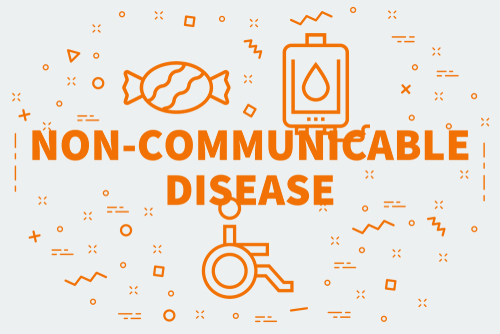Taxes indirectly responsible for growing number of NCDs; disproportionately harming the poor: Lancet study
IANS Apr 05, 2018
A recent study in the Lancet has pointed out that taxes on unhealthy beverages and cigarettes have led to a disproportionate increase in the rise of non-communicable diseases such as stroke, heart disease, diabetes, lung disease, and cancer.

Taxes on unhealthy products like soft drinks, alcohol and tobacco, have the potential to produce major health gains among the poorest in society who are disproportionately affected by diseases such as cancer, heart disease and diabetes, researchers suggest. The study helps counter fears that such taxes will necessarily disproportionately harm the poor. In a series of five papers published in the The Lancet, the researchers argued that taxes are a powerful response to rising rates of chronic diseases and an inescapable solution to tackling non-communicable diseases (NCDs) -- stroke, heart disease, diabetes, lung disease and cancer.
NCDs are responsible for 38 million deaths each year, 16 million of these are among people aged under 70 and "are a major cause and consequence of poverty worldwide". "Responding to this challenge means big investments to improve health care systems worldwide, but there are immediate and effective tools at our disposal," said Rachel Nugent from the RTI International in the US. "Taxes on unhealthy products can produce major health gains, and the evidence shows these can be implemented fairly, without disproportionately harming the poorest in society," she added.
The findings showed that high income households generally consume more, and spend more, on alcohol, soft drinks and snacks, compared to low income households, while patterns for tobacco are less consistent. In India, wealthier households spent seven times more on alcohol and three times more on soft drinks and snacks compared to poorer households. Increased taxes on unhealthy products will therefore affect a larger number of high-income households than low-income households, meaning that the revenues generated by taxes will come disproportionately from high income households.
The analysis is based on data from 13 countries - Chile, Guatemala, Panama, Nicaragua, Albania, Poland, Turkey, Tajikistan, Tanzania, Niger, Nigeria, India and Timor-Leste. The study helps counter fears that such taxes will necessarily disproportionately harm the poor. "The evidence suggests that concerns about higher taxes on tobacco, alcohol, and soft drinks harming the poor are overstated. Price policies such as taxes will be a key part of the response to rising rates of non-communicable diseases," Nugent added.
-
Exclusive Write-ups & Webinars by KOLs
-
Daily Quiz by specialty
-
Paid Market Research Surveys
-
Case discussions, News & Journals' summaries